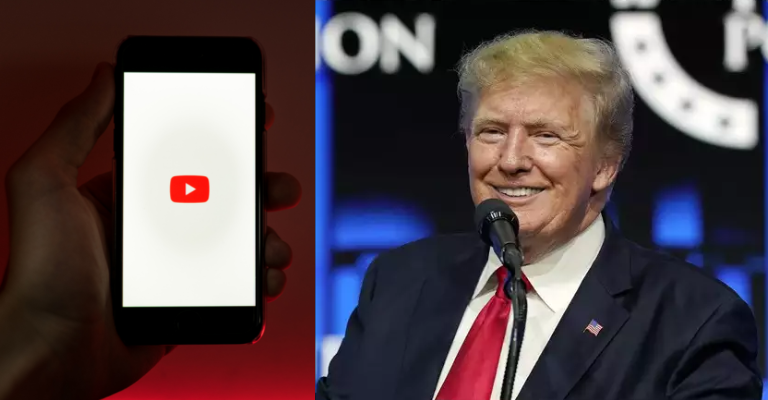YouTube has reinstated former U.S. President Donald Trump’s account after a suspension of more than two months.
Trump’s account was suspended on January 12th in the wake of the Capitol Hill riots, with YouTube citing concerns about the potential for his videos to incite violence or spread misinformation. The suspension was part of a broader crackdown on social media platforms in the wake of the riots, with Twitter and Facebook also banning Trump from their platforms.
Since then, Trump has been largely absent from social media, with his only avenue for direct communication with his supporters being press releases and occasional appearances on conservative media outlets.
Now, however, Trump’s YouTube account is back, with the company confirming that it had lifted the suspension after determining that the risk of violence had decreased. The decision was based on an assessment of Trump’s recent statements and behaviour, as well as a review of YouTube’s policies on incitement to violence and hate speech.
The move has drawn criticism from some quarters, with some accusing YouTube of inconsistency and hypocrisy in the application of its policies. Others have argued that Trump’s reinstatement could further inflame tensions and divisions in U.S. society, particularly given the ongoing controversy surrounding the 2020 presidential election and Trump’s role in the Capitol Hill riots.
In response to the reinstatement, a spokesperson for Trump praised the move as a victory for free speech and a sign that “Big Tech” was starting to recognize the importance of protecting the First Amendment rights of all Americans.
The reinstatement of Donald Trump’s YouTube account is a significant development in the ongoing debate over free speech and social media regulation. While some have praised the move as a positive step for free expression, others have raised concerns about the potential for the former president’s videos to incite violence or spread misinformation. As social media companies continue to grapple with these complex issues, it is likely that the debate over their role in regulating speech and protecting democracy will continue to be a contentious one.



![[CITYPNG.COM]White Google Play PlayStore Logo – 1500×1500](https://startupnews.fyi/wp-content/uploads/2025/08/CITYPNG.COMWhite-Google-Play-PlayStore-Logo-1500x1500-1-630x630.png)